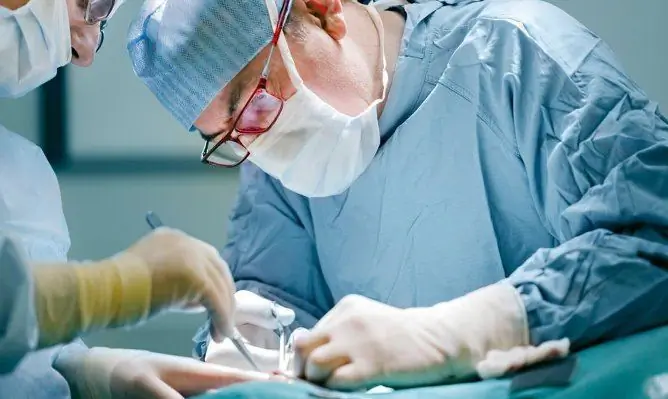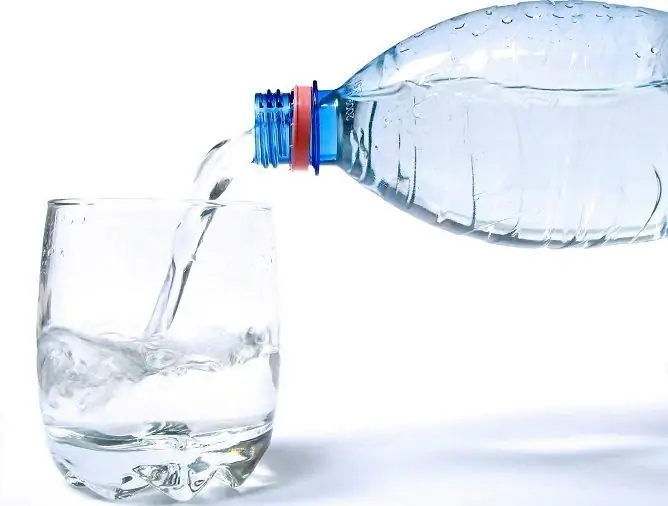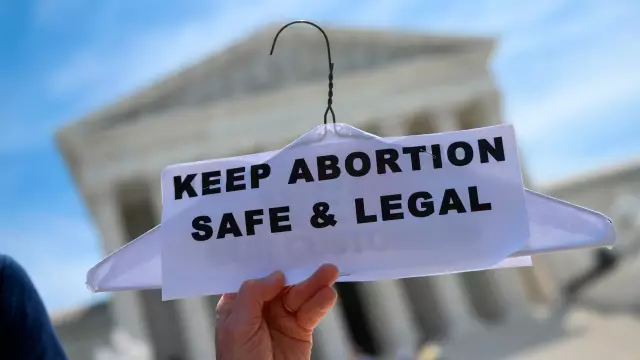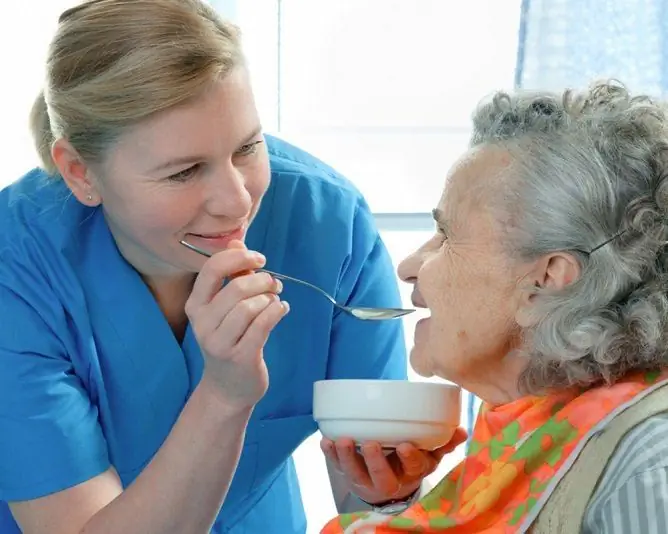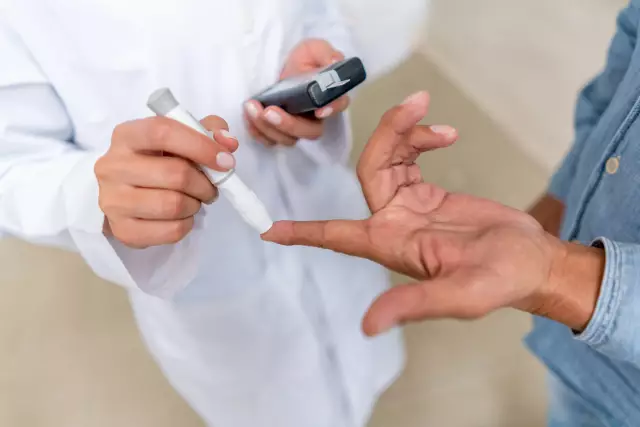- Author Rachel Wainwright wainwright@abchealthonline.com.
- Public 2023-12-15 07:39.
- Last modified 2025-11-02 20:14.
Diet after surgery

Like any disease, the period of postoperative intervention requires a special approach and respect for the patient. The same goes for the food they eat. Everyone knows that salty and fried foods are contraindicated for abdominal pain, while vitamins are biologically active components of any diet.
What should be the diet after surgery? It plays a very important role, because the patient has various tissues and organs damaged at this time. Undoubtedly, the operation is designed to save the patient's life, but it also brings considerable stress to the body. Therefore, the postoperative diet is designed to minimize the damage to the patient's health.
What should be the diet after surgery?
The dietary menu of postoperative patients depends, first of all, on which organ has undergone surgery. So, for example, there are specially designed diets after appendicitis, removal of the gallbladder, operations on the heart and blood vessels, etc.
In each of these diets, the composition of prohibited and permitted foods is slightly different. For example, the diet after appendicitis consists of eating only liquid food in the first few days after surgery. And milk and solid foods, even converted into purees, are strictly prohibited.

An individual diet menu, what is possible, what is not possible for each patient is made by the attending physician, based on the indicators of his health and the type of disease. But for all patients, without exception, a diet after surgery will be useful, which combines the general rules for a quick and effective recovery and return to a normal lifestyle.
General rules of the postoperative diet: do's and don'ts
- Drink only water for the first 12 hours after surgery.
- Meals should be started with puree, semi-liquid dishes, light mashed soups, cereals in water, low-fat natural yoghurts, natural juices.
- You should be very careful when introducing new products into the diet - no more than two items per day.
- In the first two days after the operation, it is necessary to eat in fractional portions at least five times a day. Serving size should be no more than 200 grams. The doctor should indicate how much fluid is allowed. Preference should be given to juices, water, herbal infusions, rosehip decoction. It is not recommended to increase the daily volume of fluid intake in order not to cause tissue edema.
- When the risk of developing various postoperative complications has already passed, a gradual transition to an appropriate therapeutic diet (treatment table) can be carried out. For example, a diet after appendicitis or during gastric ulcer is table 1.
- The rehabilitation period requires a gentle approach, therefore, heavy foods should not be included in the diet after the operation: nuts (in large quantities), mushrooms, seeds (they tend to clog the stomach, which significantly complicates the digestion process), lard, fatty meat, seafood, fish. Banned from vegetables: cabbage, corn and those vegetables that cause increased gas production. After operations on the intestines and stomach, sour fruits and berries, as well as citrus fruits, are contraindicated.
- As the basis of the diet after surgery, you can use various soups (light chicken, cereals, vegetables, dairy), milk-based cereals (or, if there are contraindications, on water). You can also eat bread in limited quantities, biscuits, all dairy products, a little butter, berries, fruits and vegetables. Various diseases, however, require different culinary processing of products. Therefore, you should consult with your doctor in what form it is better to use fruits and vegetables (boil, bake, grind, or you can eat them raw).
- With any diets after surgery, it is contraindicated to consume coffee, alcohol, cocoa, chocolate in large quantities (chocolate is allowed to be consumed no more than 50 g per week), canned food, smoked and fried foods, salty delicacies, as well as any confectionery products that include artificial additives.
Found a mistake in the text? Select it and press Ctrl + Enter.


